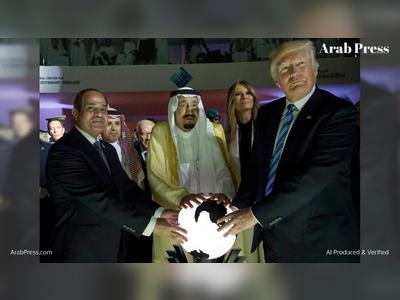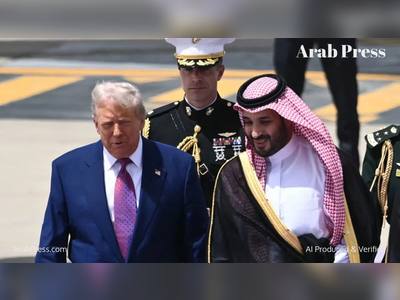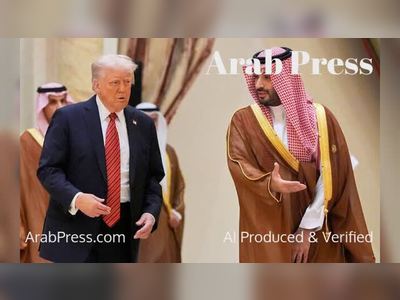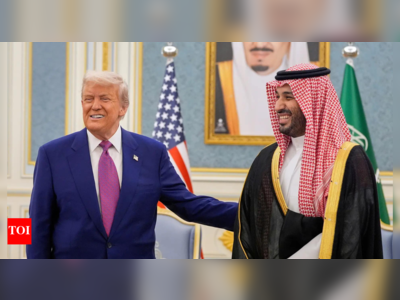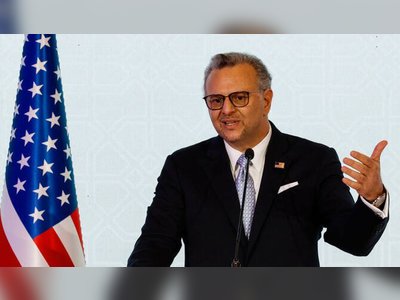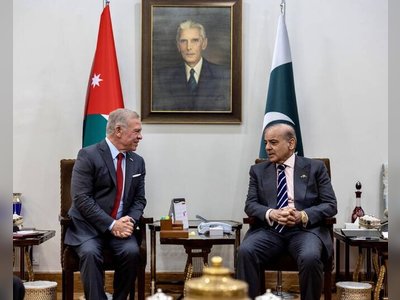Why a Full Saudi–Israel Normalisation Deal Eludes Trump’s Reach
Despite US pressure, fundamental conditions—especially the Palestinian state question—block Riyadh from formal ties with Israel
President Donald Trump is preparing to host Saudi Arabia’s Crown Prince Mohammed bin Salman in Washington next Tuesday, and much attention centres on the possibility of a formal normalisation agreement between Israel and Saudi Arabia.
But despite repeated signals from the White House, the deal remains out of reach for now.
Saudi leaders privately view recognition of Israel as a geopolitical prize, yet publicly they tie full diplomatic relations to progress on the Palestinian issue—especially the establishment of a Palestinian state on pre-1967 borders.
Riyadh’s official statements and regional posture continue to reflect this condition.
In Israel, Prime Minister Benjamin Netanyahu and his governing coalition perceive little incentive to compromise on foundational issues with the Palestinians.
With elections ahead and the “qualitative military edge” secured, they appear wary of making concessions in exchange for Saudi normalisation.
Trump’s vision of a sweeping Middle East realignment—fuelled by the Abraham Accords—is well known.
But analysts point to multiple structural barriers: Saudi public sentiment remains deeply sensitive to Palestinian rights; Riyadh’s relationships with Iran and extremist groups make overt normalization delicate; and Israel’s internal politics hamper flexibility.
Experts say the trajectory now is not a “grand bargain” but rather incremental economic, security and technical cooperation.
This means that even if Trump pursues a breakthrough during the visit, what is likely would be a symbolic pledge or economic partnership rather than formal diplomatic recognition.
A full treaty will require all parties to accept steps that, at present, they cannot comfortably take.
The centrepiece remains not the handshake with Riyadh but the political transformation in Jerusalem and change on the ground for Palestinians.
Analysts caution that until Israel revisits its stance on Palestinian statehood and Saudi Arabia lowers its public red line, the normalization “window” will continue to be deferred rather than closed.
The Trump administration may score incremental gains, but the real breakthrough hinges on the durable settlement of the Palestinian question alongside deeper Israeli-Saudi strategic ties, clinical experts conclude.
But despite repeated signals from the White House, the deal remains out of reach for now.
Saudi leaders privately view recognition of Israel as a geopolitical prize, yet publicly they tie full diplomatic relations to progress on the Palestinian issue—especially the establishment of a Palestinian state on pre-1967 borders.
Riyadh’s official statements and regional posture continue to reflect this condition.
In Israel, Prime Minister Benjamin Netanyahu and his governing coalition perceive little incentive to compromise on foundational issues with the Palestinians.
With elections ahead and the “qualitative military edge” secured, they appear wary of making concessions in exchange for Saudi normalisation.
Trump’s vision of a sweeping Middle East realignment—fuelled by the Abraham Accords—is well known.
But analysts point to multiple structural barriers: Saudi public sentiment remains deeply sensitive to Palestinian rights; Riyadh’s relationships with Iran and extremist groups make overt normalization delicate; and Israel’s internal politics hamper flexibility.
Experts say the trajectory now is not a “grand bargain” but rather incremental economic, security and technical cooperation.
This means that even if Trump pursues a breakthrough during the visit, what is likely would be a symbolic pledge or economic partnership rather than formal diplomatic recognition.
A full treaty will require all parties to accept steps that, at present, they cannot comfortably take.
The centrepiece remains not the handshake with Riyadh but the political transformation in Jerusalem and change on the ground for Palestinians.
Analysts caution that until Israel revisits its stance on Palestinian statehood and Saudi Arabia lowers its public red line, the normalization “window” will continue to be deferred rather than closed.
The Trump administration may score incremental gains, but the real breakthrough hinges on the durable settlement of the Palestinian question alongside deeper Israeli-Saudi strategic ties, clinical experts conclude.
